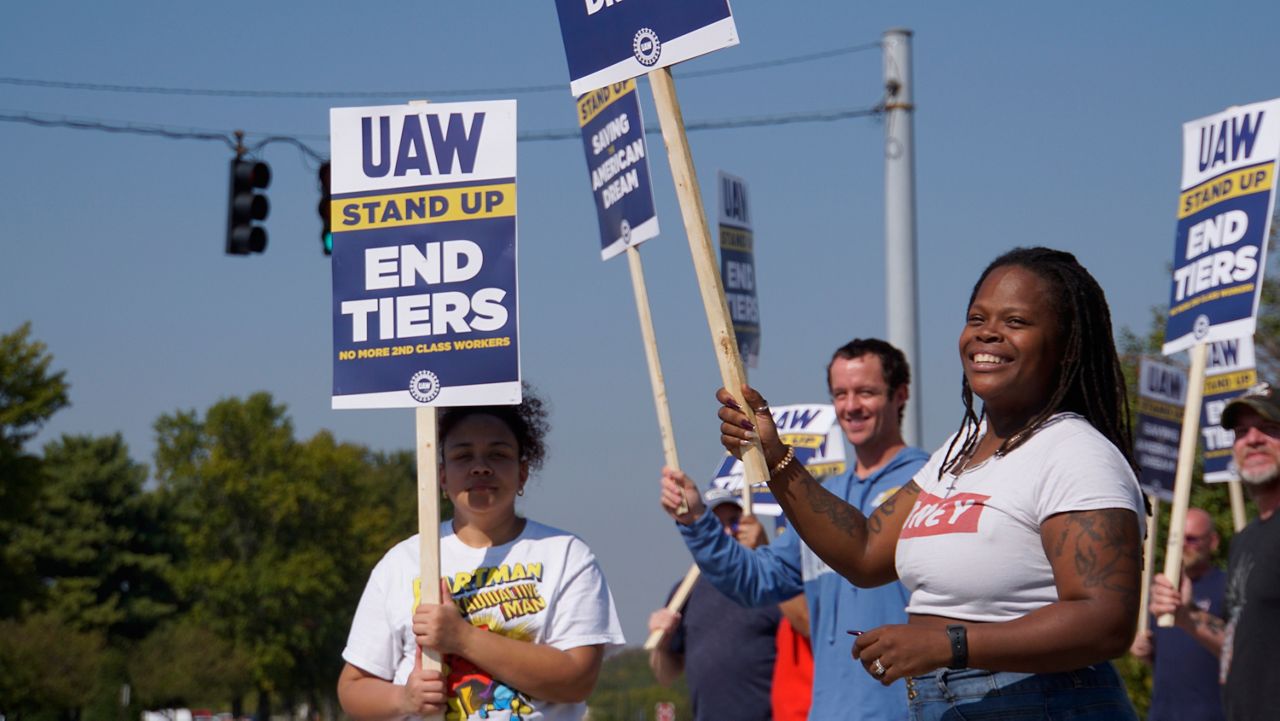United Auto Workers President Shawn Fain said Friday that the union is not expanding its strike but entering a new phase of “calling out plants when we need to, where we need to with little notice.”
The 150,000-member union began a phased strike against the Big Three Detroit auto makers September 15 as it works to negotiate new contracts with higher pay and benefits.
“We’re not waiting until Fridays anymore,” said Fain, who has called on members to be ready to join the union’s stand up strike at any time. “We’re not sticking to one pattern or one system of giving these companies an extra hour or an extra day. They know what needs to happen, and they know how to get it done.”
In July, Fain began meeting with each of the automakers separately, presenting each of them with a list of 10 demands, including a 40% wage increase, cost-of-living adjustments, defined pension benefits for all workers, the right to strike over plant closures and more paid time off to be with families. While the UAW has made progress with all three automakers, Fain said he was tired of the automakers gaming the union’s system of announcing strike expansions on Friday and engaging in 11th hour negotiations.
“They thought they figured out the rules of the game, so we changed the rules,” Fain said. “Now there’s only one rule: pony up.”
Roughly 34,000 UAW members are striking factories and parts distribution centers operated by Ford, General Motors and Stellantis. The strike began almost a month ago with 13,000 workers at three factories after the Detroit automakers failed to agree on the terms of a new contract that expired in mid September.
The strike expanded one week later with another 5,000 workers at 38 parts distribution centers in 20 states operated by GM and Stellantis and expanded again two Fridays ago to two additional factories owned by GM and Ford.
Earlier this week, the UAW added 8,700 workers to the picket lines at a Ford factory in Kentucky that makes some of the company’s most profitable trucks and SUVs, including its Super Duty pickups, Expedition SUV and Lincoln Navigator. Fain said Friday the plant makes $25 billion annually — or $48,000 in revenue every minute.
Ford executives responded to the Kentucky factory strike by saying the company had reached its financial limit in contract negotiations with the union.
“You know who’s reached their limit? The tens of thousands of Ford workers with no retirement security. The Ford workers who didn’t get a single raise for a decade,” said Fain, noting that Ford CEO Jim Farley made $21 million last year.
Two weeks ago, Ford agreed to reinstate the cost-of-living formula it had suspended in 2009 and also granted union members profit sharing and the right to strike over plant closures. The union also won additional job security in the event of layoffs, with both full-time and temporary workers receiving income security for up to two years including healthcare.
While Fain praised the Detroit Three for wage offers that “are more than the combined raises of the past 15 years” and for putting cost-of-living adjustments “on the table in a serious way,” he said it isn’t enough “to address decades of falling standards and unfair treatment of the American auto worker.”



